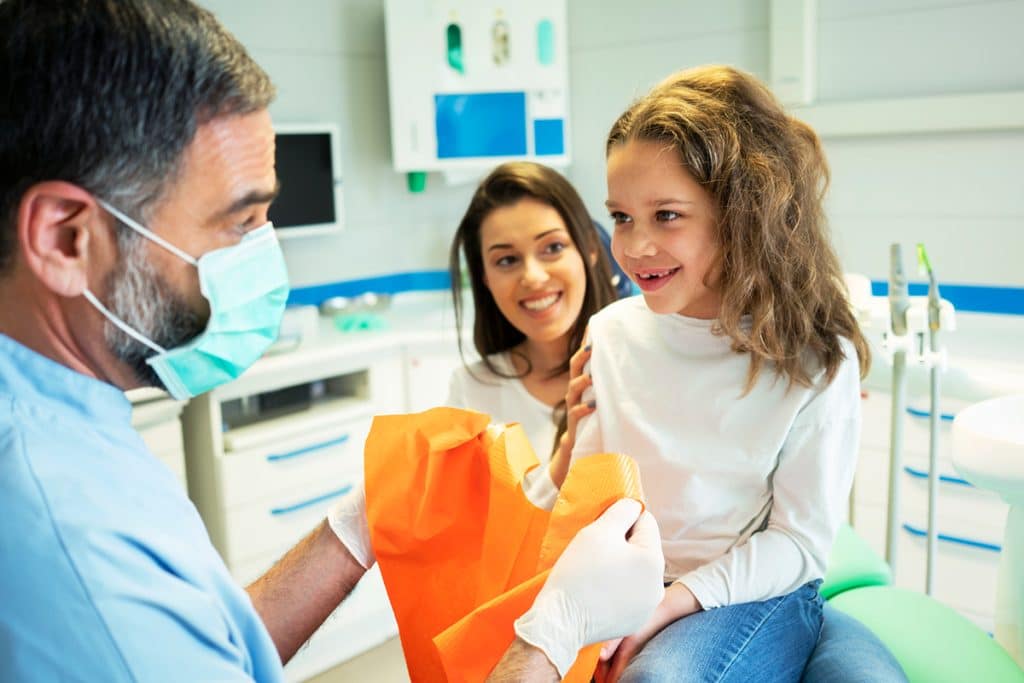When to Start Brushing Baby Teeth

As parents, we want nothing but the best for our children. One of the most crucial aspects of a child's health is their oral hygiene. Proper dental care is essential for the overall well-being of your child. Many parents are unsure when to start brushing their baby's teeth, and this is a common concern.
In this article, we will discuss the importance of oral hygiene for babies, when to start brushing your baby's teeth, how to brush your baby's teeth, when to take your baby to the dentist, and what to expect during your baby's first dental visit.
When do baby teeth start to appear?
The first teeth usually appear between the ages of six months to one year. However, it's not uncommon for some babies to start teething as early as three months or as late as one and a half years. The timing of teething varies from one baby to another. The first teeth that typically appear are the two bottom front teeth, followed by the two top front teeth. The rest of the teeth usually appear in pairs, one on each side of the jaw until the child has a full set of 20 baby teeth.
It's important to note that teething is often a painful experience for some babies. They may experience discomfort, drooling, and irritability. As parents, it's essential to provide comfort to your baby during this time.
Importance of oral hygiene for babies
Good oral hygiene habits should start early in life. Even though baby teeth are temporary, they play a crucial role in a child's oral health. Baby teeth help children chew and speak properly, and they also hold the space for the permanent teeth to come in correctly. Poor oral hygiene can lead to tooth decay, gum disease, and other dental problems that can affect a child's overall health.
It's essential to start taking care of your baby's teeth as soon as they appear. By establishing good oral hygiene habits early, you can help your child maintain healthy teeth and gums for a lifetime.
When should you start brushing your baby's teeth?
You should start brushing your baby's teeth as soon as the first tooth appears. It's recommended to use a soft-bristled toothbrush and water to brush your baby's teeth. You can also use a smear of fluoride toothpaste no bigger than a grain of rice. As your baby grows, you can increase the amount of toothpaste to a pea-sized amount.
You want to brush your baby's teeth twice a day, once in the morning and once before bedtime. Brushing before bedtime is especially important because it helps remove any food particles and bacteria that can cause tooth decay.
How to brush your baby's teeth
Brushing your baby's teeth is often a challenging task, but with patience and practice, it can become a part of your daily routine. Here are some tips on how to brush your baby's teeth:
- Use a soft-bristled toothbrush or a finger brush designed for babies.
- Use water or a smear of fluoride toothpaste to brush your baby's teeth.
- Gently brush your baby's teeth in a circular motion, focusing on the front and back teeth.
- Make sure to clean the gums and tongue as well.
- Encourage your baby to spit out the toothpaste, but don't worry if they swallow a little.
Remember, to make brushing your baby's teeth a fun and positive experience. Sing a song or play a game while brushing to make it more enjoyable for your baby.
When to take your baby to the dentist
It's recommended to take your baby to the dentist by their first birthday or within six months of the first tooth appearing, whichever comes first. The first dental visit is an opportunity for the dentist to examine your baby's teeth and gums and provide guidance on proper oral hygiene habits.
During the first dental visit, the dentist will check your baby's teeth for any signs of decay, examine the gums and jaw, and discuss any concerns you may have. The dentist may also provide fluoride treatments to help protect your baby's teeth from decay.
Your baby's first dental visit can be a new experience for both you and your baby. Here's what you can expect during the visit:
- The dentist or dental hygienist will examine your baby's mouth and teeth.
- They will check for any signs of decay, gum disease, or other dental problems.
- They will provide guidance on proper oral hygiene habits, including brushing and flossing techniques.
- They may apply fluoride treatments to help protect your baby's teeth from decay.
- They will answer any questions you may have about your baby's oral health.
Pediatric Dentistry in Tampa Bay
By establishing good oral hygiene habits early, you can help your child maintain healthy teeth and gums for a lifetime.
Remember, as a parent, you play a crucial role in your child's oral health. Encourage good oral hygiene habits, provide a healthy diet, and schedule regular dental checkups. By doing so, you can help your child have a healthy and beautiful smile for years to come.
To learn more about our pediatric dentistry services in Tampa Bay, contact us today at 727-734-3321.

